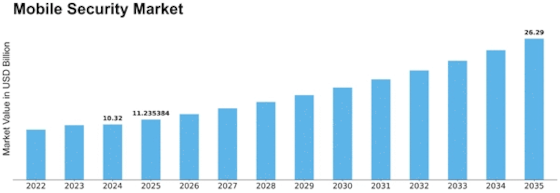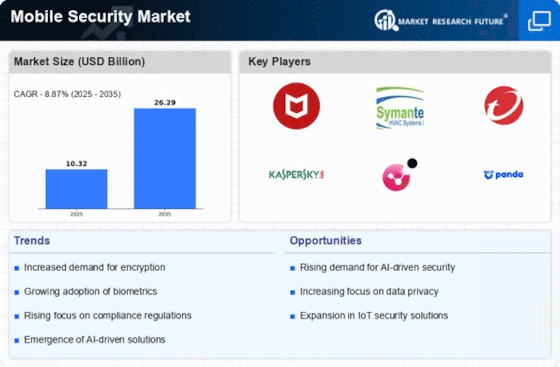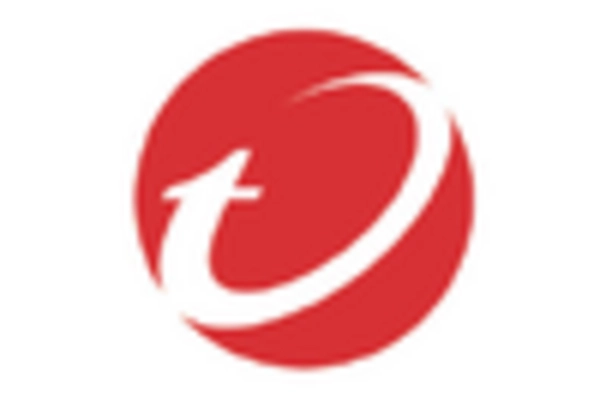Mobile Security Size
Mobile Security Market Growth Projections and Opportunities
The Mobile Security Market is an active, innovating, environment with many players indicating that various market factors are at play. The number one variable of these present days is the improving fast and repetitive contamination on the net and with mobile gadgets. Lawbreakers have taken advantage of the increasing use of cell phones globally, and have extended the cyber attack surface. It has led to a huge surge of demands for strong mobile security solutions that will secure sensitive information as well as individual data stored on these devices.
On the other hand, the climate of administration rears its head in the shape of driving the mobile security market place. Legislatures and administrative bodies around the world increasingly comprehend the growing necessity for more advanced and extensive information security legislations which have resulted in formation of stricter and more detailed rules. Mobile security companies can be significantly influenced by the methods and investments as an agreement for these guidelines, such as GDPR in Europe and CCPA, in the US region. Getting organized the market needs to channel their inputs in the administrative requirements to care for information protection and security.
Sticking to the creation and improvement of mobile innovations is also another big factor of a successful market. Another factor contributing to the rise in cybercrime is the continuous development of mobile gadgets that enables criminals to create new and sophisticated criminal strategies. The mobile health systems now have a 5G innovation, IoT, and artificial intelligence like technologies having both opportunities and challenges. With those advancements, gadgets are updated and empowered to do more, but they will be at the same time losing new vulnerabilities, which need smart security measures. To gain a competitive edge in the world market, the players in the market have to be on the frontline in terms of mechanical innovations to offer pedestrian friendly and sophisticated mobile security solutions.
Booming awareness of cybersecurity risks among people and businesses is the key factor that is expanding the market. Just making the most of media breaks and digital attacks have gone a long way in informing the public on how essential it is to shield the cell phone from hacking. Organizations at large are seeing the cash and brand risks related to document breaks, which is making them to intensify their security investment strategies into solid mobile security arrangements. This benefit of mindfulness is is helping mobile security market will continually develop as organizations continually look for in-depth security solutions against too numerous digital threats.
Market competition turns out to be the mainstay drive which drives the changes and inventions in the field of mobile security. With the presence of several merchants differing from one another, the cutthroat competition that exists among businesses will make each one of them struggle for a position that will make them stand out.



















Leave a Comment